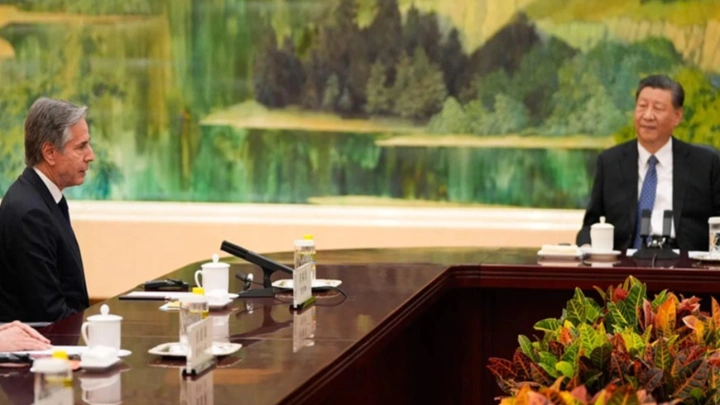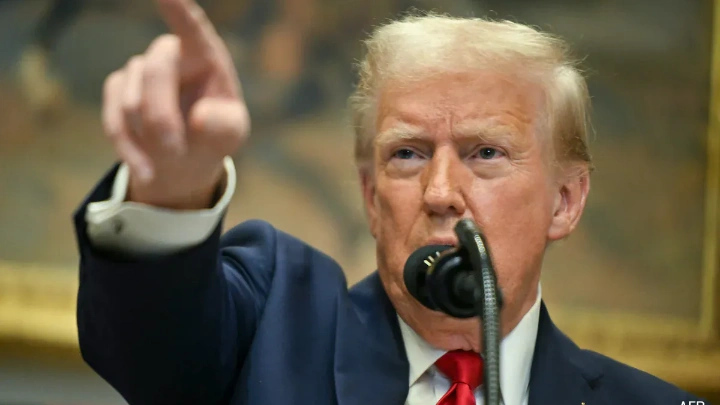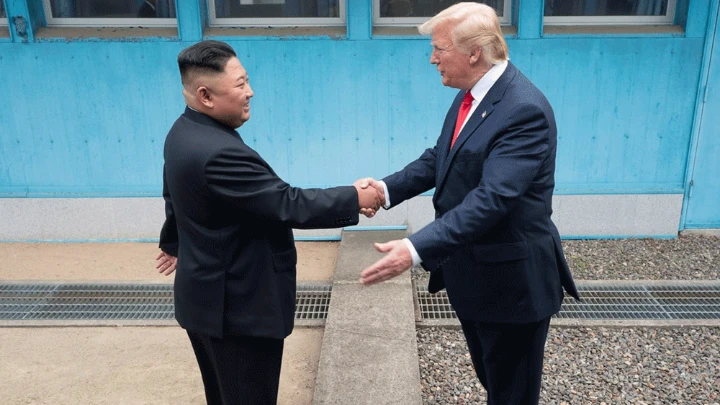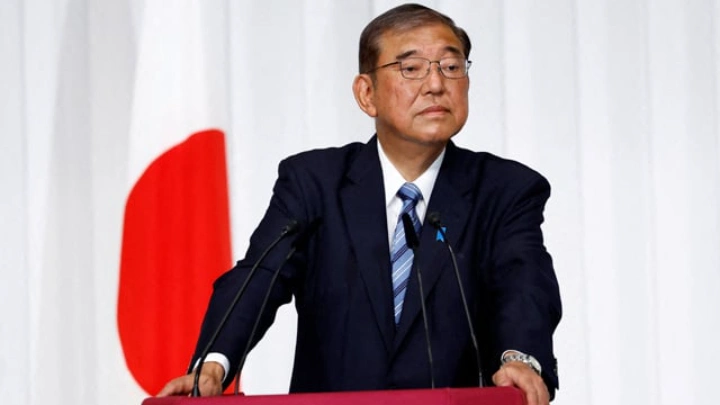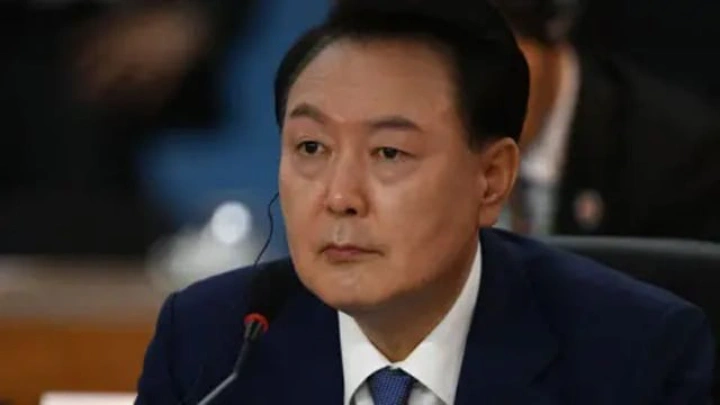Blinken’s visit may be another way of signalling to China that it shouldn’t exploit any crisis to escalate new ones, at least until the US elections are over
The mirage of US-China detente
HARSH V. PANT, ORF || Shining BD
When the United States (US) secretary of state, Antony Blinken, travelled to China last month, his purpose was threefold: First, to assess the concrete steps taken in the bilateral relationship since Presidents Joe Biden and Xi Jinping met in San Francisco in November 2023; second, to reposition the focal point of US-China relations within a rapidly shifting international landscape; and finally, to “de-risk” the bilateral relationship by ensuring that China maintains a favourable disposition towards Washington. To achieve that, Washington’s approach has been a combination of incentives and deterrents.
During the visit, lines were once again drawn between the two sides, highlighting simmering disputes on issues such as trade, technology, and security. There is a keenness in Washington to prevent these cracks from widening further, particularly in light of the repercussions of ongoing conflicts in Europe and West Asia. Of particular concern is the burgeoning China-Russia relationship, with the US expressing worry that China may be providing vital technologies to the Russian defence industry, thereby bolstering the latter’s capability to maintain battlefield advantages and undoing western support.
The Biden administration has initiated a tech competition with China since the passage of the 2022 CHIPS and Sciences Act, prompting retaliatory measures from China.
The Biden administration has consistently signalled a stance of cooperation alongside measures that have fuelled competition. On May 14, the US increased tariffs across strategic sectors such as steel and aluminium, semiconductors, electric vehicles, batteries, critical minerals, solar cells, ship-to-shore cranes, and medical products to curb China’s unfair trade practices in key sectors like tech transfer, innovation and intellectual property. Since the Anchorage summit in March 2021, when the bilateral relationship seemed to veer off course, the focus has been on “responsibly managing competition” from the US. Incidents such as former House Speaker Nancy Pelosi’s visit to Taiwan in August 2022 and the spy balloon incident in January 2023 have redrawn the boundaries of the US’s competitive approach towards China. Meanwhile, the Biden administration has initiated a tech competition with China since the passage of the 2022 CHIPS and Sciences Act, prompting retaliatory measures from China.
The impact of these disruptions has been further compounded by instability in the world order. The past couple of years have been immensely destabilising for the international system, marked by the wars in Europe and West Asia and the systemic shocks arising from them. The US-China relationship has not been immune to these impacts.
Blame it on the age of globalisation and interconnectedness, but the US-China relationship is, in many ways, a uniquely significant great power dynamic. It stands out, particularly in how it has evolved distinctively from the competitive relationship between the US and the Soviet Union during the last century. Today, between its relations with China and Russia, it is primarily with China that the US can attempt moderation. Simultaneously, China remains deeply integrated with western economies. These mutual dependencies have prevented a complete rupture in bilateral relations. Two successive high-profile visits within a month — Janet Yellen and Antony Blinken — suggest that Washington is intent on maintaining engagement with Beijing amidst the shifting sands in Ukraine and the blitz in Gaza.
Blame it on the age of globalisation and interconnectedness, but the US-China relationship is, in many ways, a uniquely significant great power dynamic.
Several cooperative steps between the two countries, such as joint efforts to combat synthetic drugs like fentanyl through the establishment of a joint Counternarcotics Working Group, collaboration on policymaking and law enforcement in this regard, and the resumption of military-to-military talks at various levels, along with the agreement to hold US-PRC talks on Artificial Intelligence in the coming weeks, underscore the shared compulsion to avert any regional or global crisis that might escalate into military conflict between the two powers. However, China perceives an opportune moment to assert itself distinctly against the US as the sole alternative power centre with comparable capacities, global heft, and influence to engage wayward countries beyond Washington’s control, such as Russia, Iran, North Korea, and Syria. Recent US intelligence suggesting potential collusion between Russia and China on the issue of Taiwan has prompted preparations for a new form of joint military readiness from the US and its regional allies.
Blinken’s visit may be another way of signalling to China that it shouldn’t exploit any crisis to escalate new ones, at least until the US elections are over in November of this year.
Shining BD

